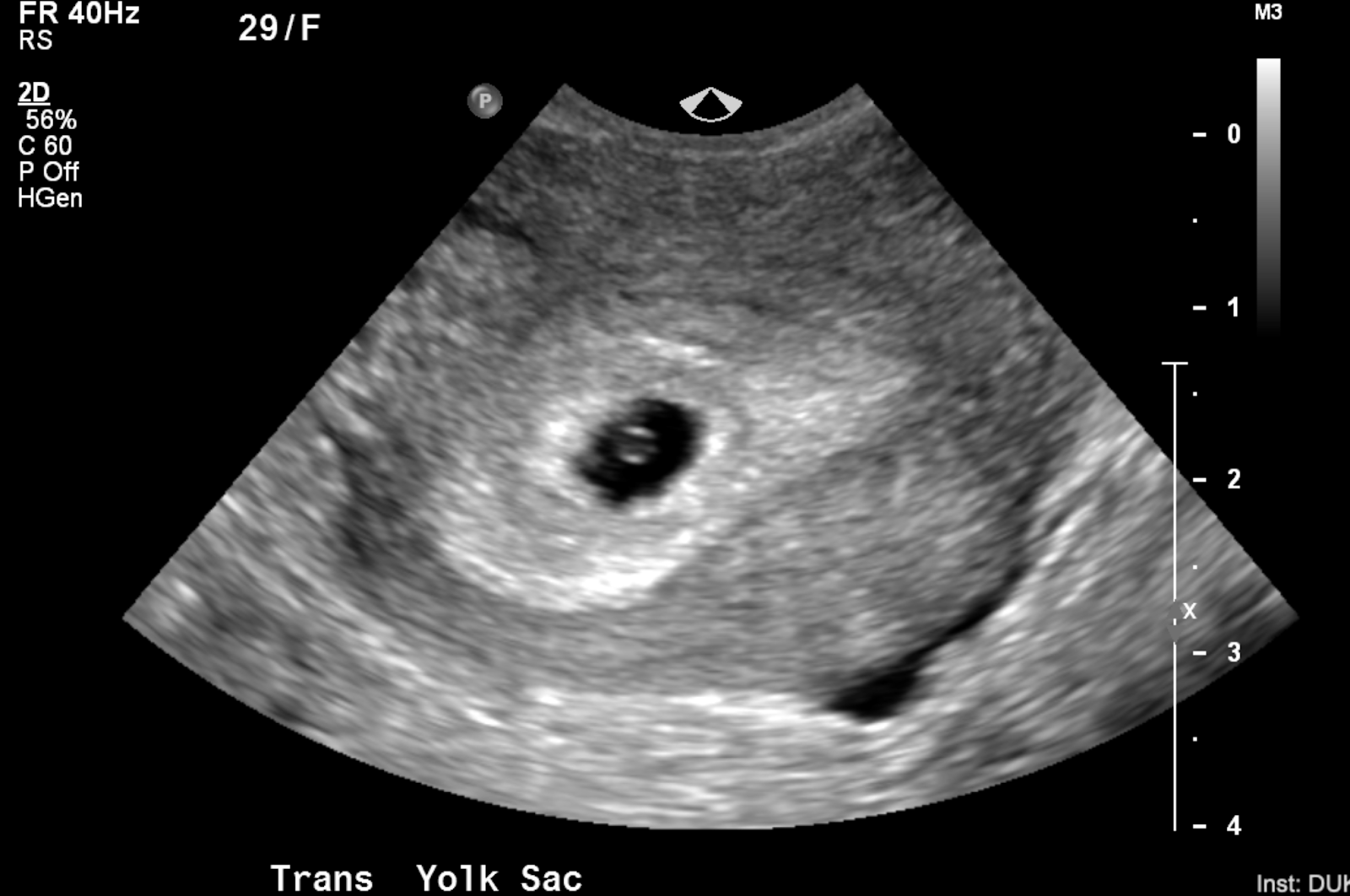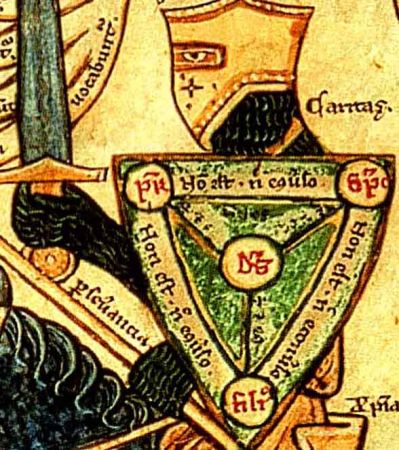We meant to ask about prenatal vitamins. Nelly has been taking these gummies that are overly sweet and she has to chew and she can't stand them anymore. The next thing we said was going to be, "do you have any recommendations for prenatal vitamins?"
But I don't know what we did actually say next, because that's when the NP told us the yolk sac was 9mm.
That datum meant nothing to us, either.
Five weeks earlier, just three days after we learned about the pregnancy, sitting six hours in a covid-infested emergency room with a sharp pain in her left abdomen, was the first time I learned what a yolk sac was. It was the thing we needed to see in the uterus where it was supposed to be to know that this pain wasn't what it wasn't supposed to be. It was that thing that finally showed up in the ultrasound, a tiny round black and white bubble that the radiologist labeled without further comment "Yolk Sac", that meant the pregnancy was not ectopic, that we could stop worrying, that we could relax and wait the remaining six hours until a doctor finally saw us to tell us the baby was fine.




